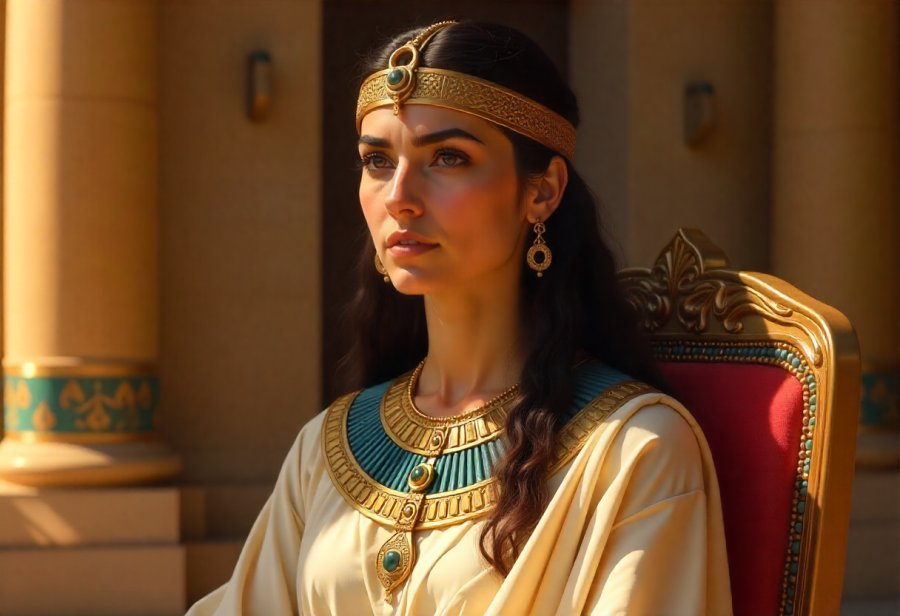Step into the extraordinary life of Alexander the Great, a young king whose military genius and visionary ambitions reshaped the ancient world and laid the foundations for cultural fusion that endures to this day. Born amid a volatile landscape of Greek city-states and the vast Persian Empire, his education under Aristotle and early leadership stoked a relentless drive for conquest. From his masterful campaigns across Persia, Egypt, and India—achievements marked by daring tactics, swift marches, and cultural diplomacy—Alexander not only expanded borders but fostered a legacy of cross-cultural exchange. His founding of Alexandria became a beacon of knowledge, inspiring modern leadership and military strategy. Yet, beneath his achievements lies the question: at what cost does true greatness come? As his empire fractured after his untimely death, his vision of unity and progress challenged us to reflect on the enduring power—and the peril—of unbridled ambition. Are his legacies of innovation, cultural blending, and leadership enough to survive the test of time?
Alexander the Great: A Legend in the Making
Alexander the Great’s life reads like the story of a legend in the making—driven by extraordinary ambition, sharp intelligence, and a natural charisma that inspired loyalty from those around him. Born in 356 BCE in Macedon, he was the son of King Philip II, a ruler known for uniting Greece under Macedonian control. From a young age, Alexander demonstrated a keen curiosity about leadership and the world beyond his borders, fueled by his education under Aristotle, which deepened his understanding of philosophy, science, and strategy.
As a prince, Alexander quickly proved he was more than just an heir. By 16, he was already leading in times of crisis—quelling rebellions, founding cities, and earning a reputation for daring tactics. His early leadership during his father’s campaigns abroad showcased his capacity to make bold decisions and inspire confidence. When Philip II was assassinated in 336 BCE, Alexander was only 20, but he moved swiftly to secure his throne, displaying a decisiveness that surprised many and set the stage for his legendary military career.
His ambitions extended far beyond Macedon. At just 22, Alexander launched a campaign against Persia, the dominant empire of the era. His army, smaller but disciplined, achieved remarkable victories through innovative tactics and boldness, including the famous Battle of Gaugamela. These victories weren’t just about territory—they were about reshaping the political and cultural landscape of the ancient world, with Alexander intent on uniting East and West under a new vision.
Alexander’s journey was cut short at only 32, but his impact is still felt today. His conquests created a vast empire that stretched across continents, blending Greek and Eastern traditions through policies of cultural fusion and city-building. His legacy of daring leadership, strategic genius, and the pursuit of a shared global identity continues to inspire and challenge us centuries later.
Context of Power: The World Alexander Inherited
The world into which Alexander the Great was born was a patchwork of competing city-states, emerging kingdoms, and powerful empires, often caught in conflict. Greece itself was fragmented, with city-states like Athens and Sparta vying for influence, yet united in their opposition to external threats. Meanwhile, the Persian Empire stretched across vast territories from Anatolia to Egypt, wielding unmatched military and economic strength. This era was marked by shifting alliances, political intrigue, and constant power struggles, setting the stage for Alexander’s bold ambitions.
Born in 356 BCE in Pella, the Macedonian capital, Alexander grew up amid a volatile political landscape. His father, Philip II, was a military genius who transformed Macedonia into a regional powerhouse by uniting the Greek city-states through a mix of diplomacy and force. This environment of strategic maneuvering and rivalry made Alexander acutely aware of the importance of military strength and political agility from an early age. His upbringing was shaped by the tensions between Macedon and its neighbors, fueling his desire to carve out a legacy of his own.
Alexander’s education under Aristotle played a crucial role in shaping his worldview. Studying philosophy, science, and leadership, he developed critical thinking skills and a curiosity about different cultures. Aristotle’s teachings emphasized virtues like virtue and knowledge, principles that would underpin Alexander’s approach to both conquest and governance. This broad intellectual foundation inspired his later policies of cultural integration and strategic diplomacy.
The death of Philip II in 336 BCE marked a turning point. Alexander, just 20, faced the challenge of consolidating power quickly amid a backdrop of wary city-states and potential rivals. His swift military actions and political moves exemplified a leader confident beyond his years. His early success in quelling rebellions and securing loyalty demonstrated his innate ability to navigate a treacherous political landscape, preparing him for the even greater ambitions ahead.
This volatile setting directly influenced Alexander’s drive to expand beyond Macedonia’s borders. His exposure to shifting alliances and rivalries fostered a keen understanding of strategic planning. Recognizing Persia’s fractured territories as both a threat and an opportunity, he saw conquest not just as territorial gain but as a means to unify diverse peoples under a new empire. This background gave depth to his bold campaigns, which would soon rewrite history.
Mastermind on the Battlefield: Alexander’s Military Genius and Conquests
Alexander the Great’s reputation as a military genius hinges on his ability to craft and execute innovative strategies that repeatedly outflanked and overwhelmed larger armies. From the outset of his campaigns, he demonstrated a mastery of surprise, speed, and adaptability, often striking where enemies least expected. His use of the phalanx combined with rapid cavalry maneuvers created a highly flexible force capable of exploiting weaknesses in opposing formations, turning tactical disadvantages into decisive advantages. This blend of tactics allowed him to achieve victories that seemed impossible against numerically superior foes.
The Battle of Gaugamela in 331 BCE exemplifies his strategic brilliance. Facing Darius III’s vast Persian army, Alexander devised a daring flanking maneuver that shattered Persian lines and morale. He leveraged terrain and deception to lure the enemy into vulnerable positions, personally leading the charge to inspire his troops. His willingness to take calculated risks transformed potential defeat into a resounding victory, cementing his reputation as a leader who thought several steps ahead.
Alexander’s campaigns extended far beyond battlefield tactics. His ability to adapt to diverse terrains and enemies kept his army effective across Persia, Egypt, and India. Swift marches, psychological warfare—spreading rumors of strength or feigning retreats—kept opponents guessing and often demoralized them before combat even began. His conquest of Persia, including the fall of Persepolis, was as much about political strategy as military prowess, aiming to undermine Persian authority and rally his troops through bold symbolism.
He understood that military success depended on more than just combat skills. Alexander integrated local customs and leaders into his administration, fostering loyalty among diverse peoples. His policy of cultural fusion, or Hellenization, involved marrying local women, adopting Persian dress, and supporting local elites—an approach that stabilized his empire and encouraged allegiance. This flexibility in tactics and diplomacy allowed him to expand rapidly while maintaining control across vast and varied regions.
His daring campaigns in regions like India, culminating in the Battle of Hydaspes, showcased his tactical ingenuity even in unfamiliar terrain and against formidable foes like war elephants. Despite fierce resistance, his adaptability and relentless drive kept his armies pushing forward. These campaigns not only extended his empire but also facilitated the exchange of ideas, technologies, and artistic influences from the East into the Hellenistic world.
Alexander’s legacy as a military innovator endures because of his relentless pursuit of excellence and his capacity to adapt. His daring maneuvers, psychological insight, and cultural savvy transformed the ancient battlefield and set new standards for military leadership. His blend of innovation and boldness made him not just a conqueror but a model for strategic thinking that continues to influence leaders and military strategists to this day.
For those interested in exploring his strategies further, studying detailed analyses of Alexander’s military tactics can offer valuable insights. A comprehensive overview can be found at Alexander the Great’s military strategies, providing a deeper understanding of his innovative approach to warfare.
Expanding Horizons: Campaigns and Cultural Fusion
Alexander’s military campaigns stretched across a vast and diverse territory, from Greece through Persia and into India. His victories, such as those at Gaugamela and Hydaspes, showcased his ability to adapt tactics to different terrains and formidable enemies. These triumphs weren’t just about territorial expansion; they opened channels for cultural exchange and political influence across regions that had long been divided. His strategic use of swift marches, deception, and psychological warfare kept opponents guessing and often demoralized them before battle even began.
Beyond the battlefield, Alexander’s founding of cities like Alexandria in Egypt played a key role in shaping his empire’s cultural landscape. These urban centers became vibrant hubs of learning, trade, and cross-cultural dialogue. They attracted scholars, artists, and merchants from various backgrounds, fostering an environment where Greek ideas blended seamlessly with local traditions. These cities served as beacons of Hellenistic influence, promoting a lasting legacy of cultural fusion that extended far beyond military conquest.
Alexander’s policies aimed at integrating diverse peoples and customs. He actively encouraged intercultural marriages, adopted local dress and traditions, and supported local elites in governance. This approach, known as Hellenization, was designed to unify his empire through shared cultural values and mutual respect. It helped stabilize his rule and foster loyalty among the many different groups within his expanding realm, leaving a legacy of cross-cultural interaction that would influence the region for centuries.
His campaigns also facilitated the exchange of ideas, technologies, and artistic influences from the East into the Greek world. The blending of Greek and Eastern styles in art, architecture, and religious practices marked the beginning of a vibrant Hellenistic culture. This cultural fusion created a dynamic, interconnected world where innovation thrived, and ideas traveled freely across borders, shaping the development of science, philosophy, and the arts long after his death.
The impact of Alexander’s conquests extended well beyond military success. The cities he established and the cultural policies he implemented fostered an era of unprecedented cross-cultural dialogue. His empire became a melting pot of traditions, beliefs, and innovations, laying the groundwork for a shared Hellenistic civilization. This legacy of blending diverse influences continues to resonate today, exemplifying how conquest can lead to a profound and enduring cultural transformation.
Investing in Legacy: Cost and Budget of Preserving Alexander’s Impact
Studying and commemorating Alexander the Great involves significant financial investment and resource allocation. Archaeological excavations at key sites—such as ancient cities, battlefields, and artifacts—require substantial funding for equipment, preservation efforts, and expert personnel. These efforts are vital to uncover, document, and protect the physical remnants of his empire, ensuring they remain accessible for ongoing research and public education. The costs of preserving artifacts like inscriptions, statues, and city ruins are ongoing, often demanding specialized techniques to prevent deterioration over time.
Maintaining and restoring historical sites adds another layer of expense. Monuments, archaeological parks, and city ruins need continuous upkeep, security, and expert care to guard against natural decay and human interference. These investments help safeguard tangible history but require a steady flow of resources to keep these sites intact and open to visitors. Such efforts not only preserve history but also stimulate local economies through tourism, educational programs, and cultural engagement.
Educational initiatives like exhibitions, digital archives, and interactive platforms also carry significant costs. Developing engaging content for museums and online resources involves curatorial work, technology, and staffing. These projects expand public access to Alexander’s story, inspiring curiosity and understanding, but they depend on sustained financial support to stay relevant and impactful. Public-private partnerships, government grants, and international collaborations are often essential to fund these initiatives effectively.
The financial commitments made to preserve and study Alexander’s legacy are justified by the broader cultural and educational benefits. These investments promote cultural literacy and foster a deeper appreciation for the interconnectedness of civilizations. Virtual tours and digital archives offer cost-effective ways to reach wider audiences, making preservation efforts more sustainable and inclusive. By safeguarding his artifacts and sites, we ensure future generations can learn from his achievements and complexities.
Ultimately, the resources dedicated to honoring and exploring Alexander’s legacy serve a greater purpose: to keep his story alive and relevant. Protecting his remnants allows history to remain accessible and meaningful, inspiring new generations to reflect on leadership, ambition, and cultural exchange. Though the costs are considerable, the enduring value of preserving such a pivotal chapter in history makes every investment worthwhile.
Legacy in Action: How Alexander’s Life Shapes the Modern World
Alexander’s influence still shapes our world today, especially through the cities and ideas he helped forge. Alexandria in Egypt stands as a prime example — founded by Alexander himself, it became a legendary center of learning, science, and trade. The iconic Lighthouse of Alexandria symbolized innovation and progress, inspiring modern institutions like libraries and research centers that continue to promote knowledge and discovery. This city exemplifies how his legacy of intellectual curiosity endures, serving as a beacon for progress centuries after its founding.
Leadership qualities attributed to Alexander—boldness, strategic insight, and the power to inspire—are frequently referenced in today’s leadership development. Figures like Nelson Mandela and Steve Jobs are often compared to him, admired for their resilience and vision. His example encourages modern leaders to think ambitiously, act decisively, and rally support in the face of adversity. These traits remain relevant, reminding us that effective leadership blends courage with adaptability, qualities that transcend time.
Military strategists still study Alexander’s campaigns, recognizing how daring maneuvers and swift adaptability can change the course of conflicts. His tactics, such as the use of deception and psychological warfare, serve as case studies in military academies worldwide. In today’s complex, competitive environments, his innovative approach to warfare underscores the importance of agility, planning, and boldness—principles that continue to influence modern military thinking and strategic planning.
Culturally, Alexander’s blending of Greek and Eastern styles in art, architecture, and religious practices laid the groundwork for the vibrant Hellenistic civilization. Contemporary creators draw inspiration from this fusion, producing art and designs that celebrate diversity and innovation. His vision of a world where traditions meet and merge still resonates, promoting the idea that blending influences fosters creativity and progress.
Finally, his policies of intercultural exchange and mutual respect laid the foundation for today’s ideas of multiculturalism and global cooperation. His approach to uniting diverse peoples through shared customs and understanding echoes in modern diplomacy and international efforts. Alexander’s life exemplifies how conquest, when guided by openness and respect, can become a catalyst for cultural exchange, shaping a more interconnected and harmonious world.








